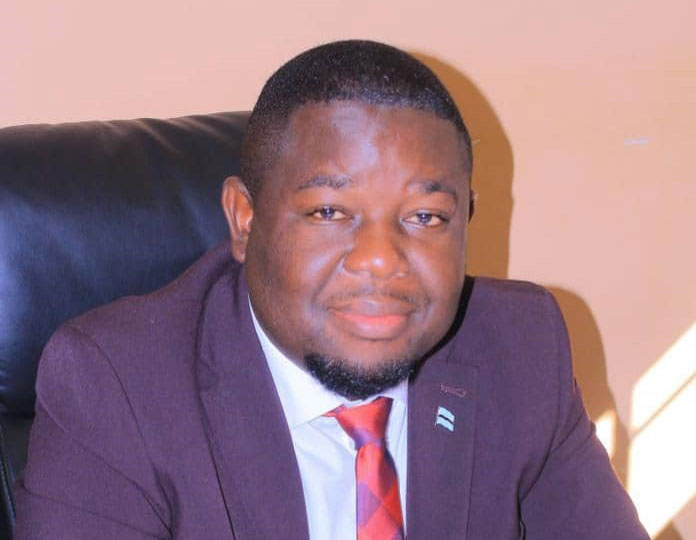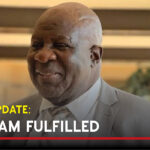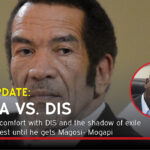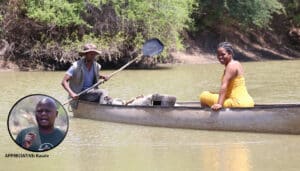-
Bringing his best to the north west
Following the retirement of North West District Commissioner (D.C) Keolopile Leipego last year, Thabang Waloka has been promoted to fill the big boots.
Having started work as an assistant district officer development in Charleshill way back in 2004, Waloka, who is in his early 40s, has risen steadily through the ranks since.
His CV is littered with stints in different D.C offices across the country, including: Gantsi (2005-2007), Maun (2007-2011), Okavango (2011-2021) and Moshupa (2021-2022).
At the beginning of August he moved north once again, to take up the biggest position of his career to date.
In this interview, Waloka tells FRANCINAH BAAITSE about his plans for the district and looming ‘wedding bells’.
Congratulations on your new appointment. What can Ngamilanders expect?
I am here as a new D.C to Ngamiland, a district with high potential to improve lives of Batswana.
This is a place where tourism, hospitality and agriculture, especially livestock, thrives.
These are the main sectors of the economy in the region which generally uplift lives of Batswana.
My coming here is to ensure that services reach the masses and make sure no one is left behind or deprived of the basic needs and free government services.
So what is your first assignment?
Development and to find alternative ways of making things happen as opposed to entirely relying on government funds.
I do not want to assume things; assumption of what is happening around.
Yes there are reports from different villages and settlements but I will be visiting all areas in the district so I can talk to the people and understand their needs and wants.
I want to hear it from them because I want everyone to take part in the reset agenda.
And what is exactly is your understanding of this reset agenda?
To me it is all about reactivating Botswana by way of resuscitating the economy.
It is a call for Batswana to think differently in their approach to development and growth, for them to change the way they have been doing things and come up with new ways of doing business and contributing to the country’s growth.
How are you going to achieve this?
I am expecting a lot and so far district leadership have welcomed me and are willing to support me on this endeavour.
We have already had our first meeting and we have agreed that we have to come up with alternative ways to eradicate problems faced by the district and not expect central government to come up with all the solutions on our behalf.
You were recently an Assistant District Commissioner in Okavango sub district, which forms part of North West.
Is it fair to assume, then, that you have an idea of the special needs of the district?
Like I said I do not want to assume anything.
But I can say for Okavango for instance, things that come to mind across the sub district are bad roads and poor supply of portable water.
I recently used the Nokaneng-Gumare road and it is in a terrible state, very bad potholes and dangerous to motorists.
When you talk water you are speaking people’s health and life so these are the things that need to be attended to.
Mind you, when we are talking economy and investment, we cannot win when we are lacking in these areas.
We now have a beautiful bridge in Mohembo meaning there is hope for more development in Mohembo East to Gudigwa as their villages can easily be reached by road.
Anything else?
One other area of concern is cleanliness. We need to keep our villages clean at all times.
The council is trying but as you know Maun is a tourism attraction area and for it to remain captivating, it has to keep its environment clean.
Are you suggesting Maun is dirty?
I cannot say that.
I am saying the council is trying and that everybody else should do the same.
It does not look tidy when some people throw rubbish bags, some full of used diapers, in the streets after the council has cleaned up and collected garbage.
We need to maintain the cleanliness.
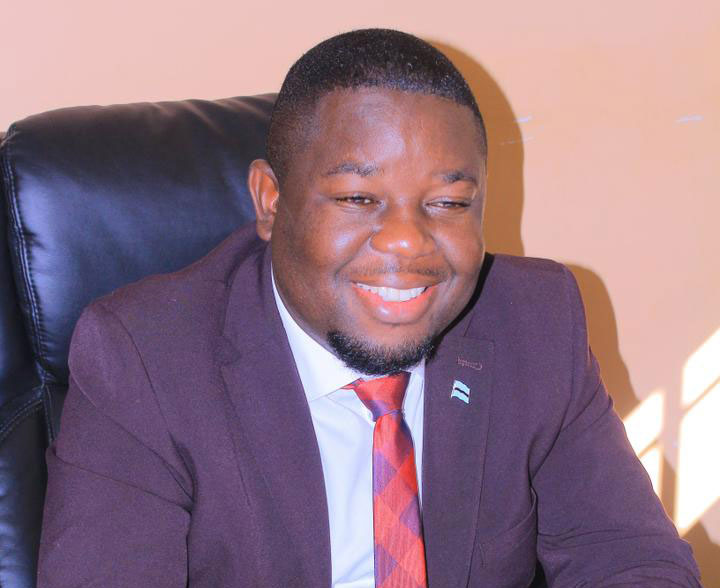
I get your point. As the D.C, what is your core mandate?
To make sure that government programmes and policies reach and are enjoyed by all in the district.
As you know, this district has a higher number of destitutes; I have to make sure that I help graduate them all from that economic state.
This district is ripe with opportunities and I therefore have to balance all these – that is balance opportunities for growth and eradicate poverty entirely.
Do you think it is possible to eradicate poverty given the status quo?
Yes, with the reset agenda we can make it happen.
We have to better our service provision.
All services geared for Batswana should reach Batswana.
We must understand our area as it is, including special needs of individual settlements.
Some Batswana are missing out on important services simply because they are far from them and they have no means or resources to follow them.
So we are saying offices should go where people are and offer those services.
Where needed, temporary offices and outstations have to be put up so that everyone has an equal chance to benefit from existing programmes.
What are some of the services you believe are important but are difficult for remote dwellers to access?
Youth office for instance is not there in settlements and young people in those area are not getting a fair chance to start businesses.
We want them to go set up temporary offices in settlements because as it is, it appears as though only youth in bigger villages have access to funding.
In fact, funds permitting, my wish was for settlements to have reserved funds for that purpose as a deliberate move to encourage potential beneficiaries to have easier access to these funds.
We also have burning issues including bad roads and poor water supply.
What is your workable solution to this, as these struggles have been an ever-present since Independence?
Priority! What we need is to focus on one area of priority for every quarter and make sure it is done.
For instance, if we say this quarter roads are bad and we focus on road maintenance, that is all we will focus on and nothing else, that way we will make progress.
How about the political wing, they may differ when it comes to priority of projects?
Integration and coordination of programmes and projects is key here.
It is important for the administration and political wing to be on the same level of understanding and agree on our priorities.
We simply have to change the way we have been doing things because the blanket approach is uncoordinated and slows down progress.
Moving away from your office duties, as a young boy did you ever dream of holding such an important and influential office?
Not exactly, but I always heard elders talking about my leadership kind of character from a young age. I was doing very well in school from primary to secondary up to tertiary.
So at school, I used to alternate with this other guy for top class position; I was either number one or him and if not number two.
Today he is a top accountant.
So when I completed my degree as an economist I worked for the District Commissioner’s office and rose through the ranks.
From day one I was a hard worker and people always gave feedback through public meeting responses; in the council or kgotla meetings.
Indeed, I heard you are back in the district because you are the people’s favourite?
I cannot say anything to that but what I know is that I am not the kind of person who stays in the office and enjoys an executive chair.
I enjoy field trips because that is where the work is.
When I want to understand the people’s concerns I go to them and not wait in the office.
Are you a family man?
I am not yet married, but I have found the one and about to ring the bell.
You know as a D.C you get to arbitrate and council couples who are either fighting or going through divorce and in the process this impacts the way you think or make of relationships.
You really have to take time and understand your own affairs; so I can say, I have done my assignment and I got the one, I am satisfied and ready.
Congratulations are in order then! Anything else that people do not know about you?
I am a man of sober habits, I don’t drink nor smoke.
From the many divorce-related cases you’ve had to deal with, what are the common causes of conflict in marriages?
Cheating. People get into relationships and marriages for material gain and it mostly does not end well for the couple.
Batswana have issues with marrying out of community of property; I believe it is probably high time they are taught that this kind of arrangement is equally okay.
Your last word?
It will be to encourage young people in general to take life and whatever they do including their jobs seriously; account for every Thebe they make and they will make positive progress in life with less regrets.


